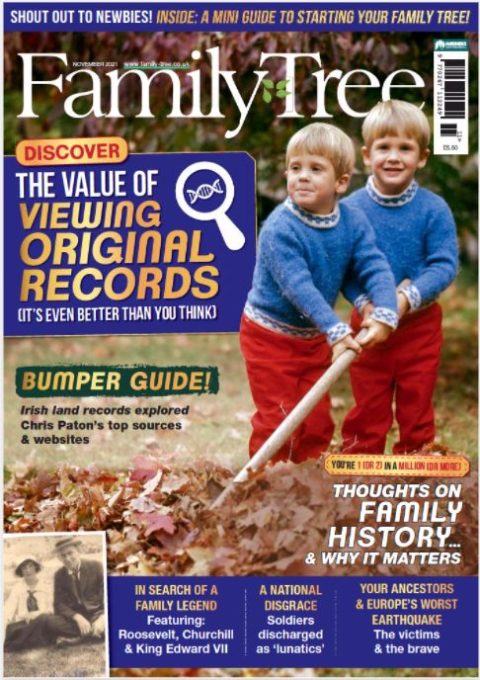 Here’s an almost complete TOC for the new issue.
Here’s an almost complete TOC for the new issue.
FAMILY HISTORY NEWS Rachel Bellerby reports on the latest from the world of family history.
ALCOHOL INSANITY Archivist Lisa Edwards looks at Victorian attitudes to mental health and the long-reaching consequences on our families.
TRACE YOUR FAMILY HEROES Explore the military collections on Ancestry.
IRISH LAND RECORDS Family historian Chris Paton provides an overview of some of the land records useful for Irish-based research.
A MINI GUIDE TO STARTING GENEALOGY Here are some tips to kick-start your family history search.
TWIGLETS Gll Shaw unravels more Riboldi riddles & colourful characters.
REALLY USEFUL FAMILY HISTORY SHOW TALKS Peruse the full program of the upcoming online show from the Family History Federation.
TWIGs Gill Shaw stumbles upon another unexpected turn of events.
TURN BACK TIME Try out the easy-to-use photo restoration tool Vivid-Pix.
THE VALUE OF USING ORIGINAL RECORDS Family Tree Acadamy tutor David Annal shows how they can help to find that incontrovertible link.
IN SEARCH OF A FAMILY LEGEND Clare Kirk weaves a masterful account of her complex history.
WHY FAMILY HISTORY MATTERS Chris Broom reflects on the unique nature of each of us and the importance of family history.
YOUR DNA WORKSHOP DNA advisor Karen Evans helps to piece together some very confusing pieces of a DNA puzzle.
BOOKS With Helen Tovey & Rachel Bellerby.
EUROPE’S WORST EARTHQUAKE Dr. Simon Wills provides tips to research the victims & heroes.
YOUR QUESTIONS Experts step up to help.
SPOTLIGHT ON. Cumbria Family History Society with John Steel.
DIARY DATES Essential family history dates.
LETTERS Readers have their say.
DREAMING OF ANCESTORS Diane Lindsay’s sleep has been interrupted by an ancestral visitation from a Regency forebear.


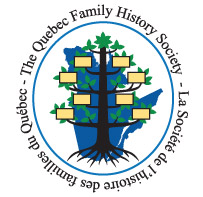 This Saturday, 16 October, the Quebec Family History Society offers four online presentations by speakers
This Saturday, 16 October, the Quebec Family History Society offers four online presentations by speakers 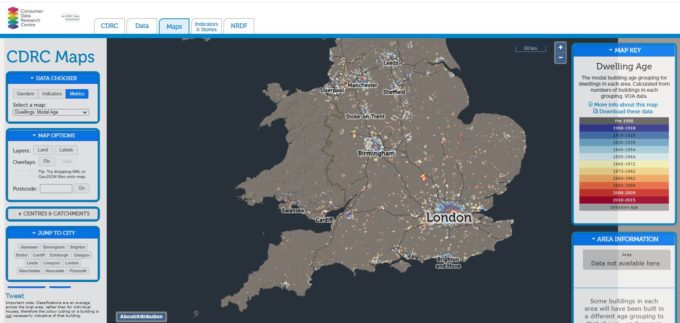
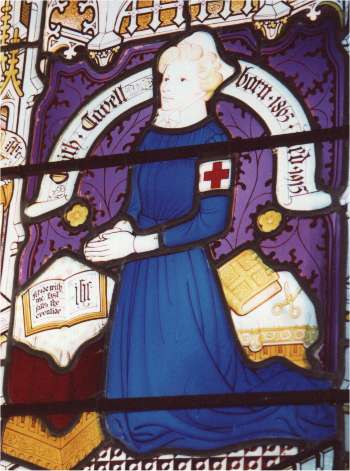
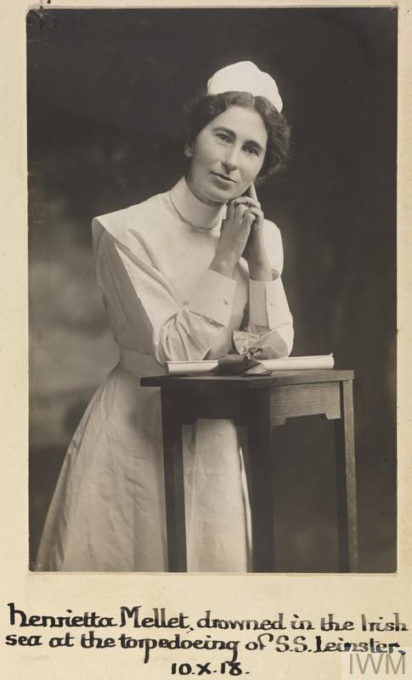
 Since the last update, countless new DNA kits and family tree profiles have been added to MyHeritage. That’s according to a news release from the company.
Since the last update, countless new DNA kits and family tree profiles have been added to MyHeritage. That’s according to a news release from the company.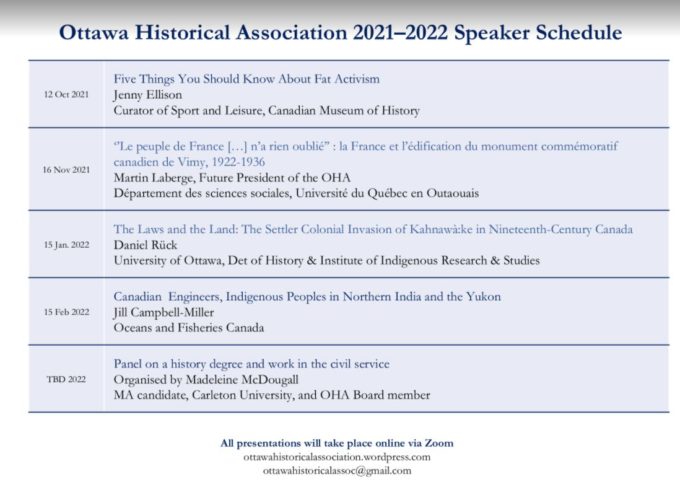
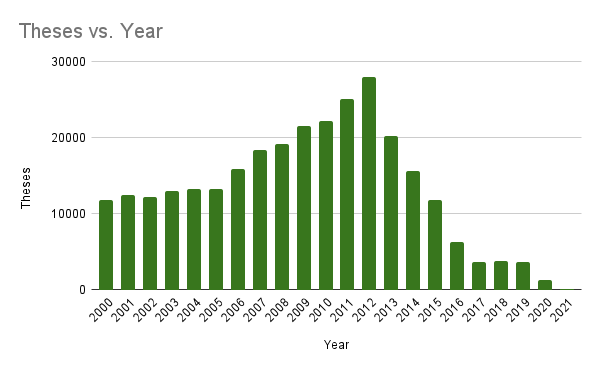 If you haven’t searched for theses on a topic of interest for your family history you haven’t done an exhaustive search.
If you haven’t searched for theses on a topic of interest for your family history you haven’t done an exhaustive search.